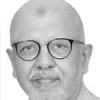Pakistan in 2024
Pakistan is set to enter another year surrounded by deep-rooted challenges over its medium- to long-term future. The prospect of another political transition, with elections planned in February, is set to cause much noise -- but without substance.
Ahead of the transition, rival political contenders for now are focused more on the race to seize power, without a clear plan for reforming the country. With all but one of the mainstream parties – the PTI – poised to grab power either by one or a more likely coalition to reach the magic number, the future of Pakistan is set to remain mired in continuing challenges.
The outcome beyond the elections is rooted in the character of Pakistan’s sorry politics. For long, a successive set of rulers have remained detached from the mounting issues surrounding the country’s mainstream inhabitants. With that much blemished history, it is hardly surprising that Pakistan is witnessing one of the worst economic challenges in its history, while the country's political rivals are just obsessed with grabbing power.
To date, the main political rivals have repeatedly promised a more prosperous future though without clearly articulating exactly how that will be achieved. And judging by their past, the main political rivals have little to offer by way of........
© The News International





















 Toi Staff
Toi Staff Gideon Levy
Gideon Levy Andrew Mitrovica
Andrew Mitrovica Tarik Cyril Amar
Tarik Cyril Amar David Hutt
David Hutt Moncef Khane
Moncef Khane Patrick Gathara
Patrick Gathara Dr Ramzy Baroud
Dr Ramzy Baroud Belen Fernandez
Belen Fernandez Rami G Khouri
Rami G Khouri Sabine Kinkartz
Sabine Kinkartz Brad Glosserman
Brad Glosserman Ghada Ageel
Ghada Ageel Steve Wenick
Steve Wenick Ayala Weinberg
Ayala Weinberg Brahma Chellaney
Brahma Chellaney
